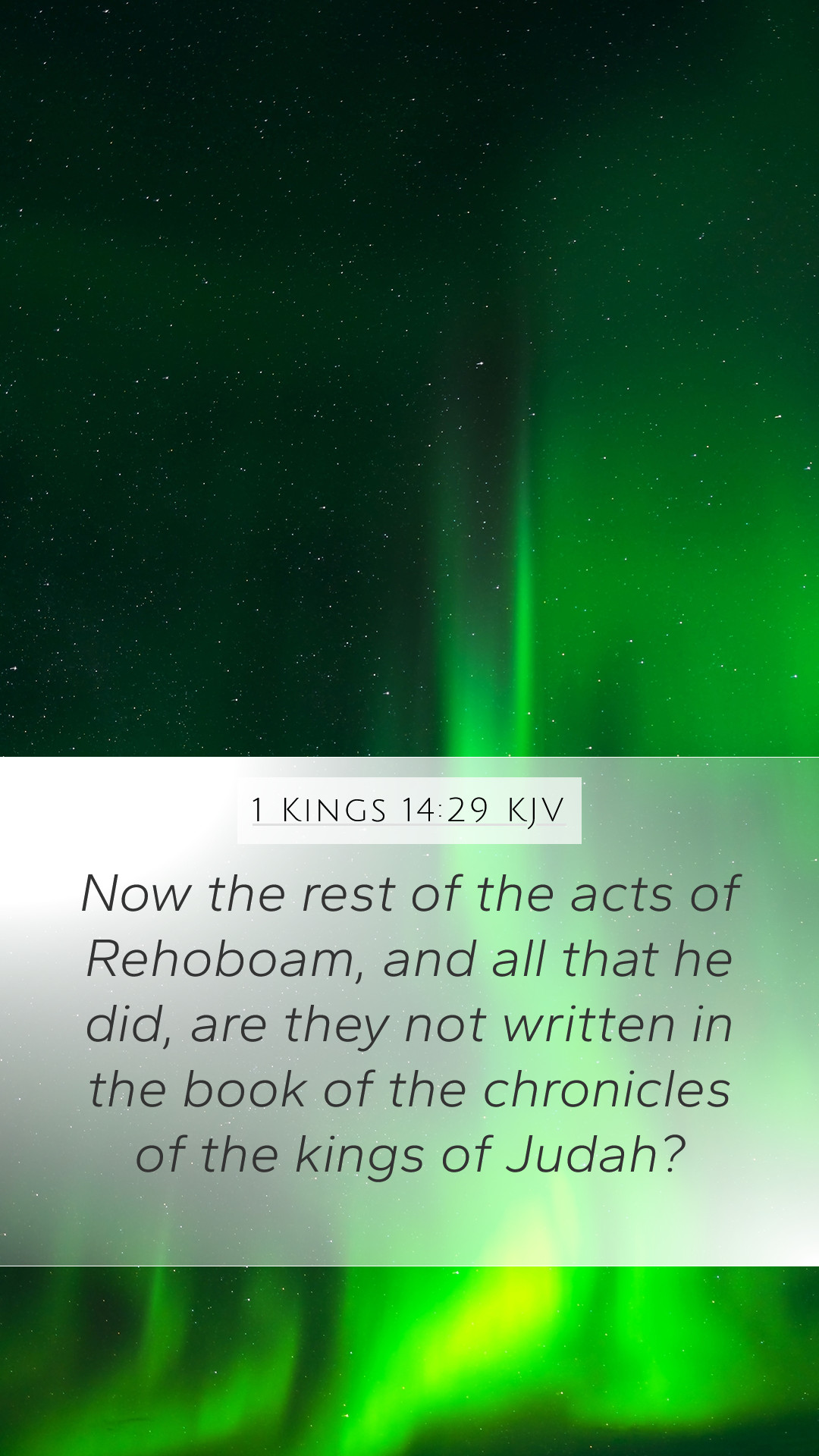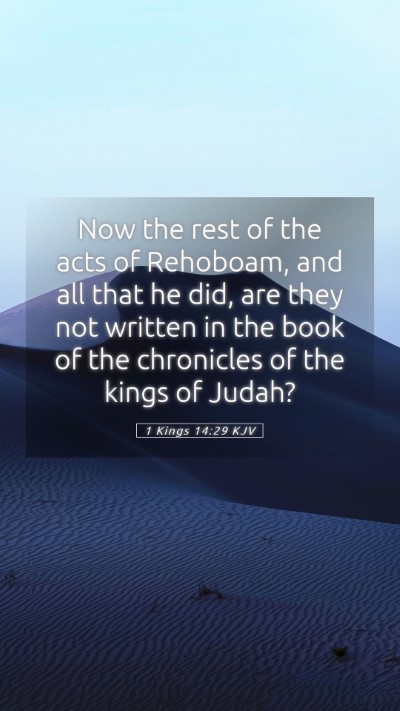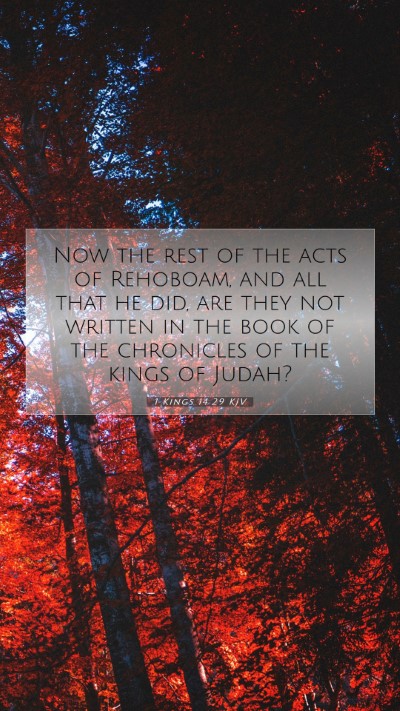Understanding 1 Kings 14:29
1 Kings 14:29 states:
"Now the rest of the acts of Rehoboam, and all that he did, are they not written in the book of the chronicles of the kings of Judah?"
This verse serves as a summary statement within the context of the reign of Rehoboam, son of Solomon, and provides an entry point for understanding the larger narrative of the kings of Judah. The verse signifies the importance of historical records and encourages further exploration of Rehoboam's reign. Below, we delve into the commentary insights from noted scholars to enhance our Bible verse understanding.
General Summary of Rehoboam's Reign
Rehoboam ascended to the throne after the death of his father Solomon. His reign is characterized by a notable decline in Israel's unity and peace, leading to the separation of the northern tribes and the southern kingdom of Judah. This verse emphasizes the continuation of the historical record, hinting at Rehoboam's complex legacy.
Commentary Insights
-
Matthew Henry's Commentary
Matthew Henry emphasizes the significance of recording kings' deeds in history. This practice serves not only as a form of documentation but also as a means of teaching future generations about the importance of obedience and folly among rulers. He highlights that Rehoboam's actions led to the division of the kingdom, marking a pivotal moment in biblical history.
-
Albert Barnes' Notes
Albert Barnes points to the Chronicler's perspective, noting that the 'book of the chronicles' serves as an authoritative source about the kings of Judah. Barnes suggests that by referring readers to these chronicles, the writer signifies that a deeper understanding of the kings’ decisions and their impacts is crucial for interpreting biblical narratives. This verse also serves as a transition, encouraging readers to look at the consequences of Rehoboam's choices.
-
Adam Clarke's Commentary
Adam Clarke offers insights into the character of Rehoboam and stresses the importance of wise counsel. He draws attention to the earlier decisions made by Rehoboam that ultimately led to his unwise choices. Clarke emphasizes that the chronicler's recording functions as a warning against similar pursuits of pride and lack of humility.
Theological Themes
This verse encapsulates significant themes in biblical exegesis, particularly:
- Divine Sovereignty: The record of Rehoboam’s actions demonstrates God's overarching authority in guiding the fate of nations.
- Human Responsibility: The emphasis on Rehoboam’s decisions highlights the concept of accountability for one's actions.
- Historical Context: This verse indicates the importance of understanding history, as the narratives surrounding the kings of Judah offer critical context for the unfolding story of Israel.
Application of This Verse
1 Kings 14:29 can be applied to various aspects of personal and communal life:
- Learning from History: Just as the chronicles of kings highlight the importance of wise leadership, modern audiences can reflect on the decisions of past leaders.
- Seeking Counsel: The lesson on Rehoboam's failure to listen to counsel establishes the necessity of wisdom and the pursuit of sound advice in decision-making.
- Preserving Records: The acknowledgment of historical writings encourages the documentation of experiences and lessons learned for future generations.
Cross References
This verse is closely related to the following Scriptures:
- 1 Kings 12:1-24 - The division of the kingdom and Rehoboam’s refusal to heed wise counsel.
- 2 Chronicles 10 - Further insight into Rehoboam's responses to the people.
- 1 Kings 14:23-24 - Context of idolatry and its impact during Rehoboam's reign.
Conclusion
1 Kings 14:29 serves as a reflective marker in Scripture, reminding us of the importance of wise leadership and the consequences that follow poor decisions. By studying this verse and utilizing Bible study guides, readers can gain deeper insights into the complexities of biblical narratives and their applicability to contemporary life.
This thorough exploration of the verse offers an in-depth Bible verse analysis, essential for anyone engaged in online Bible study or Bible study groups. Understanding the critical lessons embedded in these historical texts is vital for spiritual growth and maturity.


